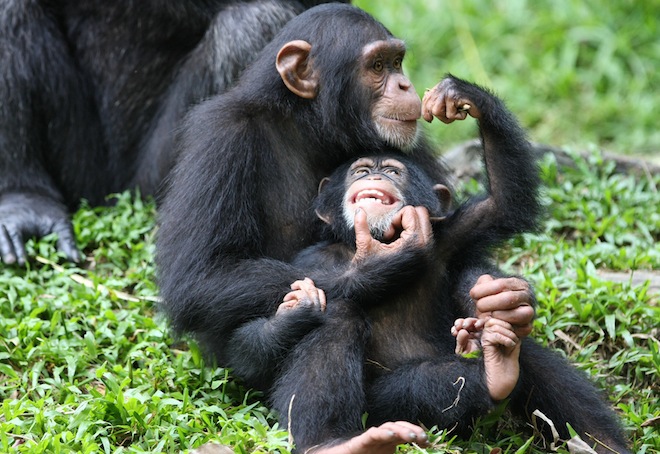As the world celebrated the International Primate Day on Friday, September 1 2017, the Rainforest Rescue, a not-for-profit outfit, lauded the Wild Chimpanzee Foundation (WCF) for influencing the establishment on Tuesday, August 22, 2017 the new Grebo-Krahn National Park in Liberia, a protected habitat for more than 300 endangered West African chimpanzees.

The WCF’s relentless advocacy was said to have convinced the Liberian House of Representatives to create the national park, squeezing the vote in just before the close of its legislative period.
Observred on every September 1, the International Primate Day is an annual educational observance event organised since 2005 largely by British-based Animal Defenders International (ADI) and supported annually by various primate-oriented advocacy organisations. It speaks for all higher and lower primates, typically endorsing humane agendas where primates are at risk, as in research institutions or species endangerment in precarious environmental situations.
According to the Rainforest Rescue, Grebo-Krahn is just the beginning, adding that it is working in collaboration with the WCF to establish further national parks to protect the habitat of West Africa’s chimpanzees, which are said to be in acute danger of extinction.
“A mere 35,000 chimpanzees still live in West Africa – that’s a decline of 80 percent in only 20 years. Fortunately, there are still lush and virtually untouched rainforest areas between Côte d’Ivoire and Guinea,” stated the group.
It adds: “Our partners from the WCF are working tirelessly to establish as many protected areas as possible. The groundwork includes extensive and costly studies on biodiversity. Local communities must have a stake in the project, and authorities and policymakers need to be persuaded. And the work is not complete with the proclamation of a national park: eco-guards recruited from the villages of the region need to be on patrol continuously to protect the forest.”
Expeditions of WCF chimpanzee guardians led by Professor Christophe Boesch collaborated with Liberian authorities – above all the Forestry Development Authority – as well as local organisations and communities to document the biodiversity of the Grebo-Krahn forest. In a final step, they marked trees to stake out the boundaries of the protected area.
The fate of the project was a cliff-hanger until the very end: while President Ellen Johnson Sirleaf had expressed her agreement, parliamentary approval was not forthcoming – a situation further complicated by campaigning for the upcoming elections on October 10, 2017.
On August 22, champagne corks popped in the WCF offices: the Liberian House of Representatives had unanimously concurred with the Senate and passed the establishment of the national park into law, just days before the end of the legislative period.
Rainforest Rescue reportedly supported the WCF’s work with donations. “Without your generosity, the campaign might have dragged on for years – or maybe it wouldn’t have succeeded at all if the incoming government had set other priorities,” says Dr. Annika Hillers, the head of the WCF office in Liberia.
Hillers, it was gathered, is now turning her attention to establishing another protected area: the Krahn-Bassa National Park also in Liberia, where WCF researchers want to provide exact figures in a few weeks’ time on how many chimpanzees and other rare animal species such as forest elephants, pygmy hippos and pangolins live in the forest. Initial expeditions were said to be so promising that the area of investigation, which originally covered Gbi forest, was expanded. The lengthy process of involving local communities is reportedly now beginning.
Another project, the proposed Moyen-Bafing National Park in Guinea, is also in the radar, and WFC officials believe that its success is crucial for the 5,000 chimpanzees living there.
